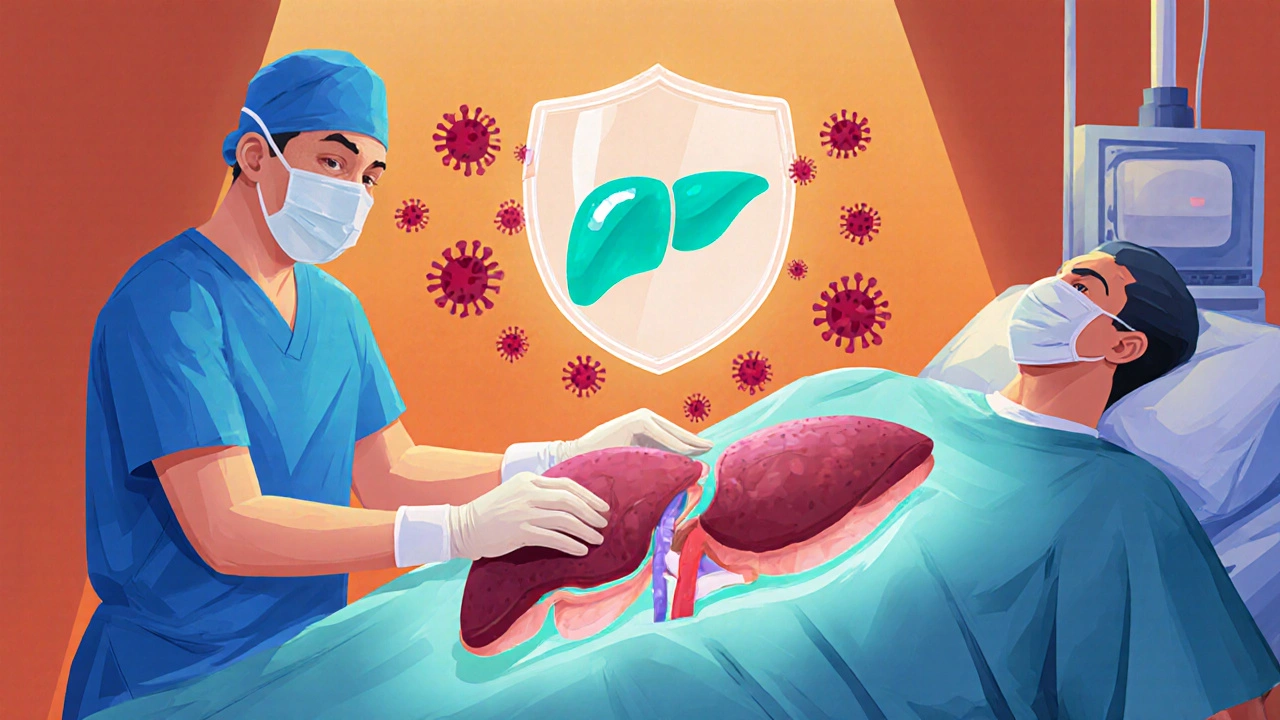Explore how velpatasvir works, its safety, dosing, and clinical evidence for treating hepatitis C in liver‑transplant patients, plus a practical checklist and FAQs.
Post-Transplant Treatment: What You Need to Know About Medications, Risks, and Recovery
When you get a new organ, the real work begins after surgery. Post-transplant treatment, the ongoing medical care required to keep a transplanted organ functioning and prevent the body from rejecting it. Also known as transplant maintenance therapy, it’s not a one-time fix—it’s a lifelong commitment to medication, monitoring, and lifestyle changes. Without it, even a perfectly matched organ can fail within weeks. The body’s immune system sees the new organ as an invader, and left unchecked, it will attack. That’s why immunosuppressants, drugs that lower the immune system’s activity to prevent organ rejection are the backbone of everything that comes after transplant surgery.
There’s no single drug that works for everyone. Common transplant medications, the combination of drugs used to suppress immune response and reduce complications after organ transplantation include tacrolimus, cyclosporine, mycophenolate, and corticosteroids. Each has side effects—tremors, high blood pressure, kidney stress, or increased infection risk—and doctors tailor the mix based on your organ type, age, and overall health. You’ll need regular blood tests to check drug levels. Too little, and your body rejects the organ. Too much, and you’re vulnerable to serious infections or even cancer. It’s a tightrope walk, and you’re the one walking it every day.
Rejection doesn’t always come with obvious symptoms. Sometimes, it’s silent—detected only through bloodwork or a biopsy. But signs like fever, swelling, pain near the transplant site, fatigue, or sudden weight gain shouldn’t be ignored. Early detection saves organs. That’s why follow-up visits aren’t optional. You’ll need to see your transplant team often in the first year, then regularly for life. Infections are another big concern. Simple colds can turn dangerous. That’s why handwashing, avoiding crowds during flu season, and skipping raw meats or unpasteurized dairy aren’t just tips—they’re survival rules.
Recovery isn’t just about the body. Mental health matters too. Anxiety about rejection, depression from long-term meds, or guilt over being a donor’s gift—all of it is real. Many patients feel isolated, especially when friends move on with their lives but you’re still managing pills and appointments. Support groups, counseling, and talking openly with your care team can make a huge difference. And while you can’t go back to how things were before, you can build a new normal: one where you’re active, eating well, and still in control of your health.
Below, you’ll find detailed comparisons and guides on medications, side effects, and long-term care strategies used by transplant patients. These aren’t theoretical—they’re based on real patient experiences and clinical data. Whether you’re newly transplanted or years out, there’s something here that can help you stay healthy, avoid complications, and live better with your new organ.

